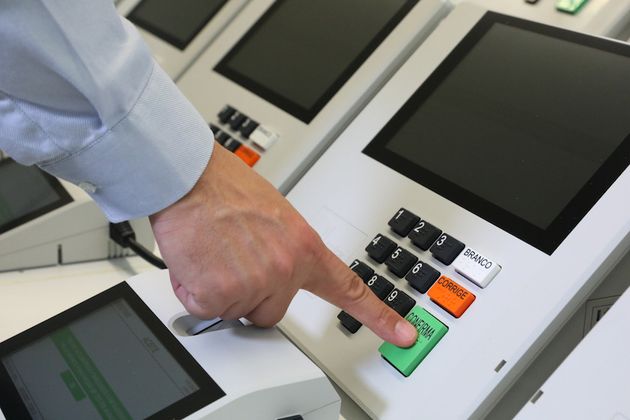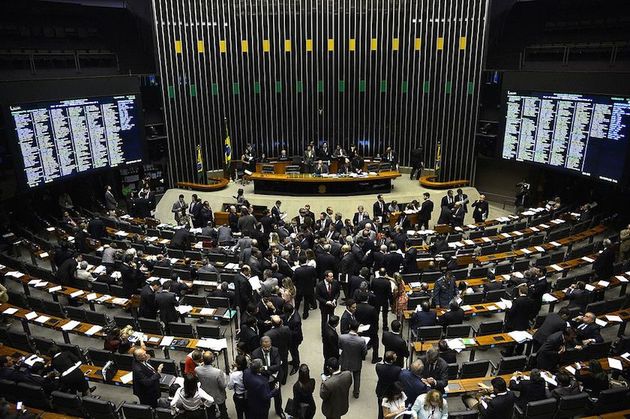The country faces new elections amid increasing polarisation. "The dispute over the evangelical vote has become very important", say analysts.
![Photo: [link]Mateus Campos Felipe[/link], Unsplash CC0.](https://cms.evangelicalfocus.com/upload/imagenes/6336e72303389_brafla.jpg) Photo: [link]Mateus Campos Felipe[/link], Unsplash CC0.
Photo: [link]Mateus Campos Felipe[/link], Unsplash CC0.
The first round of the presidential elections in Brazil will be held on Sunday 2 October and the second round on 30 October 2022, unless one of them obtains more than 50% in the first ballot.
These elections are marked by the return of Lula da Silva, who is back after the Brazilian Supreme Court annulled all the sentences against him in September 2021 as a result of the anti-corruption operation Lava Jato.
Jair Bolsonaro faces the challenge of re-election.
In addition to these two candidates, the Brazilian political landscape is very varied, from former prominent names in the national porn industry, to the obsession with marijuana legalisation of federal deputy candidate Dário de Moura, or the also candidate for federal deputy Maurício Souza, a national volleyball legend who was Olympic gold medallist in Rio de Janeiro 2016.
"We have a dozen candidates in total, but eight of them have practically no points in the main polls", Marcos Simas, PhD in Religious Sciences from the Methodist University of São Paulo and professor of the Master's programme in Theology at the South American Theological Faculty (FTSA), told Spanish news website Protestante Digital.
Alexandre Brasil Fonseca, a doctor in sociology specialised in investigating evangelicals in Brazil, explains that in 2018 "the stabbing of Jair Bolsonaro prevented the other candidates from making the usual attacks that occur in an election campaign".
Therefore, "at the end of the first round, we saw that the other candidates were exhausted and, in fact, the dispute already ended in a climate of polarisation".
"Some candidates are seeking, in the midst of the current polarisation, to present a third way, or an alternative way. The main ones among them are Ciro Gomes and Simone Tebet", says Simas, who clarifies that he mentions these names because they are two of the few candidates other than Lula and Bolsonaro who manage to accumulate "percentages in the polls".
For Simas, "this campaign seems to be more polarised than the previous one. In fact, there is a tendency for campaigns to become increasingly polarised in the coming years, largely because the use of social media is increasing without reflection or education, even among older and highly educated people.
"These tools should allow their users to broaden the plurality of their thoughts and ideas, but on the contrary, they are provoking fragmentation into 'tribes' resulting in the censorship of debates that are an important part of a democratic society", adds Simas.
Fonseca considers that, for these elections, "no political option other than Lula or Bolsonaro is effectively viable. Lula has established a broad alliance that brought together sectors of the centre and centre-left. Bolsonaro has remained isolated, but no other figure has shown the strength to be competitive in these elections".

One of the latest polls by the Datafolha Institute gave Lula victory in the first round with 47% of the vote, but Simas warns that "some of our research institutes have very low credibility due to errors, ideological biases and the criticisms that circulate on social media about them, because of their often false content, posing a seemingly small and harmless lie to discredit people and institutions".
"Social media are a very important factor in these and the upcoming elections and we need to reflect on this in a broad and deep way to not allow further tearing of the social fabric, because with these media everything is intensified and multiplied faster and almost limitlessly", underlines Simas.
Although this influence of social media and misinformation has contributed to polarisation, Simas and Fonseca agree that, "it is possible to identify that both Lula and Bolsonaro have a consolidated quota of supporters with a strong rejection of their opponents".
"This polarisation is complicated and contributes little to democracy. Bolsonaro and Lula have some common characteristics, but they are not equivalent", says Fonseca.
The economy, the security and the ethical and moral debates are the main areas of general interest in the run-up to the October elections.
"For Bolsonaro, the focus has been on asserting the ideological danger of the left returning to power and issues such as the defence of the family and an anti-abortion stance. On the other hand, Lula's discourse has focused on social concerns, the role of the state and the need to establish a reconciliatory leadership in Brazil", explains Fonseca.
With the memory of the coronavirus pandemic, which has left over 686,000 people dead in Brazil, Simas states that each "ideological side" has already defined its "enemy" for the elections.
"First, conservatism, which is wrongly labelled as religious fundamentalism by those who do not respect or understand it, and even despise it. And secondly, progressivism, which is deliberately and systematically trying to 'destroy' traditions, especially Christian ones", he points out.
Simas adds that "not only evangelical Christians, but also Catholics and other religions believe that some agendas are too 'advanced', especially in terms of moral standards".
The doctor in Religious Sciences compares the current scenario with "a war in which, on one side are the academy, the mainstream media, the cultural elites and part of the urban economic elite, and on the other side is the working class, which participates in the conservative national religious system, and the emerging economic elite, located mainly in agro-industry, whose geographical strength is in the interior areas of the country".
For Simas, the first thing the next government will have to face is "to ease this polarisation. I think it will be necessary to build a path of dialogue and respect for the common good, both from the next president and his team, as well as from the defeated".
"Another great challenge would be the creation and implementation of an economic project that does not only benefit one group or another, nor one social class over another, an economy that aims to grow sustainably and in the long term. We also have to think about income distribution, and this is a long-standing and chronic national problem", stresses Simas.

The so-called 'evangelical bench' has been a reality for years in the Brazilian political scene, but it was in the 2018 elections when there was a greater dependence on the 'evangelical vote'.
"Today, the evangelical vote seems key in defining whether or not there will be a second round", says Fonseca.
In the midst of the political debate, "there is a big confusion due to the entry into the campaign of a new active agent, which was already present in the previous campaign and is even more evident in the current one: the presence and participation of the evangelical Christian religion in the national political scenario, with future consequences in the public sphere", states Simas.
"This may turn the evangelical Christian religion into a new kind of 'enemy' confronted by society, which will certainly bring great damage to its image for the next generations of our country", argues Simas.
For weeks the mainstream media have published articles with references to evangelicals, which in many cases show their ignorance.
The candidates are aware of this reality. "The dispute for the evangelical vote started to become important and this has led both candidates to look for specific strategies", stresses the Brazilian sociologist.
"The leaders of most of the main Pentecostal churches and pastors enthusiastically support Bolsonaro's re-election. Lula, on the other hand, has a greater challenge among evangelicals, being the sector that supports him the least", adds Fonseca.
To get that vote, "Lula and the Workers' Party aim to identify a format in which his candidacy dialogues with church members, since the path to the majority of leaders is limited", he explains.
Lula has obtained the public support of Marina Silva, a well-known evangelical candidate in the last elections, who is running in October as a federal deputy for the state of São Paulo.
For Simas, "it is important to define what is that ''evangelical church'' of which so many speak as an abstraction. For centuries, in Europe and in Brazil, Roman Catholicism has shaped the mentality of most of those who analyse or give their opinion on Christian religions, especially this group commonly known as 'evangelicals'".
"In most churches, even denominationalism no longer works as a unifying factor, resulting in the complexity of local churches and the personalism of their leaders. Therefore, this attempt to 'catholicise' the evangelical church as an homogeneous social group does not fit into a serious and responsible analysis", warns Simas.
The evangelical bench, Simas insists, "does not accurately reflect that complexity of the 'evangelical church', the theological and social plurality of a group of approximately 65 million people, from rural and urban areas, with different educational backgrounds, different social classes and races, collective interests and often in disagreement with each other and with their system of beliefs and practices".
However, he agrees with the generalisation that the evangelical population in Brazil "defends conservative patterns regarding morality and positions itself more on the right". But "that political 'right' is mixed with religious discourse, causing great confusion in the minds of observers".
According to Simas, evangelicals have also been affected by the impact of social media, which causes that "the agenda is no longer unified from a leader who centralises beliefs and debates, but from lay people who disseminate ideas and concepts, who are empowered as their publications are commented on and applauded".

Las opiniones vertidas por nuestros colaboradores se realizan a nivel personal, pudiendo coincidir o no con la postura de la dirección de Protestante Digital.
Si quieres comentar o